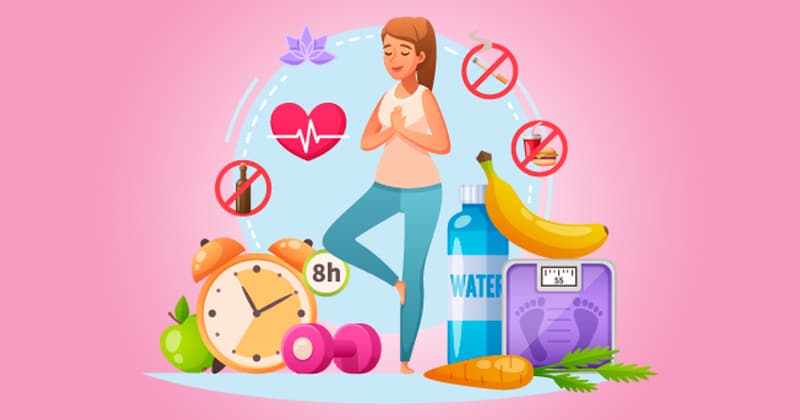Managing and maintaining health means increased energy levels, and a better ability to accomplish our daily goals. Be physically active (get regular exercise). Obtain and keep a healthy weight. (Overweight or obese women with breast cancer should reduce their intake of high-calorie foods and beverages and up their physical activity to aid in weight loss.) Eat at least 2½-3 cups of vegetables and 2 cups of fruit every day. Managing and maintaining health means increased energy levels, and a better ability to accomplish our daily goals.
A healthy life style for breast cancer includes:
• Preserving a healthy weight.
• Maintaining a balanced diet
• Performing exercise (exercise)
• Not a smoker
Breast self-exam, or regularly examining your breasts on your own, can be an important way to find breast cancer early when it’s more likely to be treated successfully.
Some healthy behaviors have been linked to a lower risk of breast cancer recurrence and improved survival. Others are part of a lifestyle that has been linked to a lower risk of other cancers and health conditions such as heart disease, diabetes, and osteoporosis.
It pays to get moving because patients who regularly exercise have a higher 10-year breast cancer survival rate than patients who don’t. The World Health Organization suggests 75 minutes of more intense exercise each week, or at least three to five hours of moderate exercise. Strength and resistance training should be increased. This might need to be built up gradually. Regular exercise during and after treatment helps reduce cancer-related fatigue and psychological distress, as well as some of the treatment’s side effects. Besides that, it aids in reducing the weight gain that is commonly a symptom of breast cancer treatments.
After diagnosis and treatment, adopting a healthy lifestyle can have a significant psychological impact, as feeling out of control is one of the biggest challenges faced by those with breast cancer. Making positive changes can be very empowering, and it is reassuring to be aware that you are already continuing to take steps to maintain good health even after active medical treatment has ended. Active changes such as reducing stress, losing weight, increasing activity, quitting smoking, and eating healthily all contribute to an overall improvement in physical and emotional well-being.






